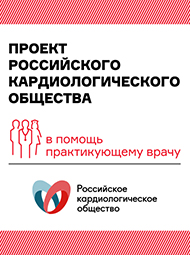Current Evidence on Treatment of Patients With Chronic Systolic Heart Failure and Renal Insufficiency: Practical Considerations From Published Data
Study Question:
What is the current evidence regarding the interactions between heart failure (HF) and renal dysfunction, and what is the effect of key disease-modifying therapies used in HF in patients with renal dysfunction?
Methods:
This state-of-the-art paper is a review of data from randomized clinical trials in HF regarding the interactions between renal dysfunction, particularly chronic kidney disease (CKD) and the effect of therapy.
Perspective:
The study authors came to the following important conclusions:
1. Improvement in outcome with angiotensin-converting enzyme (ACE) inhibitors in HF (or left ventricular [LV] systolic dysfunction after myocardial infarction) with moderate renal dysfunction (stage 3 CKD) is supported by consistent evidence. Although there are no conclusive data in HF with severe renal dysfunction (stage 4-5 CKD), they concluded that it is possible that ACE inhibitors are also of benefit in these patients. The dose of ACE inhibitors should be halved in patients with stage 4 and 5 CKD, or given every other day in patients on dialysis.
2. The benefits of single angiotensin-receptor blockade (ARB) therapy in HF with stage 3 CKD are supported by limited evidence, and there are no data on the effect of ARB in severe renal dysfunction.
3. Add-on ARB therapy should be considered in patients with chronic HF who do not tolerate a mineralocorticoid receptor antagonist (MRA), even if they have stage 3 CKD. Data in stage 4-5 CKD are limited to one study of hemodialysis patients, but that study did demonstrate benefit.
4. The utility of MRA in HF with stage 3 CKD is supported by convincing evidence for a significant treatment benefit, but no data are available in stage 4 and 5 CKD. It is important that serum potassium be rigorously monitored with MRA therapy, as recommended in guidelines, particularly in patients with CKD.
5. Kidney function and electrolytes should be monitored, with ACE inhibitor or ARBs or dual renin-angiotensin-aldosterone (RAAS) receptor blockade. If serum creatinine increases with a RAAS blocker, nephrotoxic drugs should be discontinued if possible and/or the dose of diuretic reduced. If these interventions are not relevant, not possible, or have no effect, and renal function deteriorates significantly, the dose of the RAAS inhibitor should be halved and serum creatinine checked within 2 weeks. When serum creatinine increases by >100% or to >3.5 mg/dl)/estimated glomerular filtration rate <20 ml/min/1.73 m2, RAAS blockade should be stopped.
6. Beta-blocker therapy in HF patients with stage 3 CKD is associated with clear benefit, in large subgroup analyses from landmark trials, and likely benefit in HF patients with stage 4 and 5 CKD.
7. Digoxin may be considered in HF patients with stage 3-5 CKD, with judicious monitoring of serum digoxin levels and electrolytes.
8. ICD therapy should be considered in patients with stage 3-5 CKD, as these patients were not excluded from implantable cardioverter-defibrillator (ICD) trials and benefits seem to occur independent of kidney function.
9. Cardiac resynchronization therapy (CRT) is useful in patients with mild to severe HF and stage 3 CKD, as supported by convincing evidence in clinical trials, while there are no specific data on the effect of CRT in stage 4-5 CKD.
10. Attempts should be made to re-instate evidence-based therapy, including RAAS and MRA blockade, which was discontinued because of worsening renal function once either kidney function has improved or stabilized.
Source: www.cardiosource.org


.jpg)



